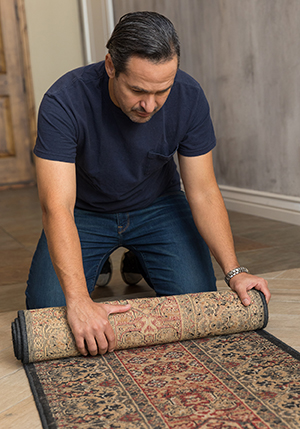Preventing Falls: Are You At Risk of Falling?
 |
| Ask for help to reduce risk of falling in your home. |
As you get older, you are not as steady on your feet as you once were. You may have health problems you did not have when you were younger. It is not surprising that older people are more likely to trip and fall. Falling can be very serious. It can change your overall health and quality of life. That is why it is important to be aware of your own risk of falling.
The dangers of falling
Falls are one of the main causes of injury in people over age 65. An older person who falls may take longer to get better than a younger person. After a fall, an older person is more likely to have problems that do not go away. This is why preventing falls can help you avoid serious health problems.
Are you at risk of falling?
Answer these questions to rate your level of risk.
- Are you a woman?
- Have you fallen or stumbled in the last year?
- Are you over age 65?
- Are you ever dizzy or lightheaded with standing?
- Do you have a hard time getting in and out of the bathtub or on and off the toilet?
- Do you lean on objects to help you get around? Or do you use a cane or walker?
- Do you have vision or hearing problems? For example, do you need new glasses or hearing aids?
- Do you have 2 or more long-lasting (chronic) medical conditions?
- Do you take 3 or more medicines?
- Have you felt depressed recently?
- Have you had more trouble with your memory in recent months?
- Are there hazards in your home that might cause you to fall, such as loose rugs or poor lighting?
- Do you have a pet that jumps on you or might trip you?
- Have you stopped getting regular exercise?
- Do you have diabetes?
- Do you have a neurologic disease, such as Parkinson or Alzheimer disease?
- Do you drink alcohol?
- Do you wear athletic shoes or slippers, or go barefoot at home?
You can help prevent falls
If you answered "yes" to any of the above questions, take steps to reduce your risk of a fall. Monitoring health conditions and keeping walkways in your home free of clutter are just two ways. Changing is sometimes easier said than done. Keep in mind that even small changes can make you less likely to fall.
|
The fear of falling
It's normal to be scared of falling, especially if you have fallen before. Being afraid can actually make you more likely to fall. This is because:
- Fear might cause you to become less active. Being less active can lead to a loss of strength and balance.
- Fear can lead to isolation from others, depression, or the use of more medicines or alcohol. And all these things make falling even more likely.
To break the cycle, learn more about ways to avoid falling. As you take control, you may find yourself feeling less afraid.
|